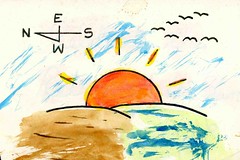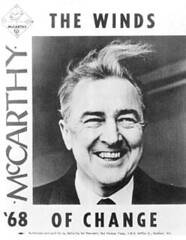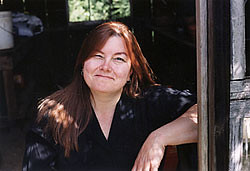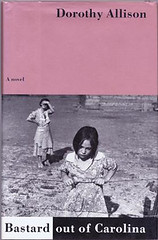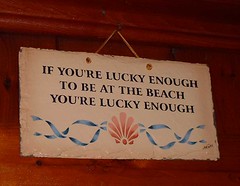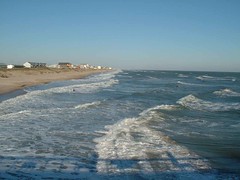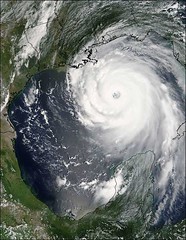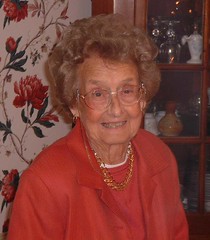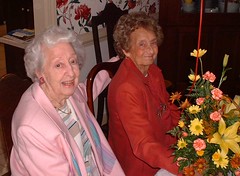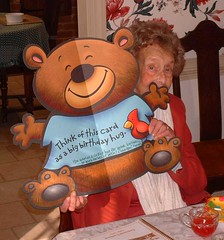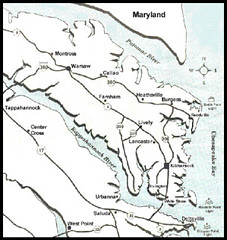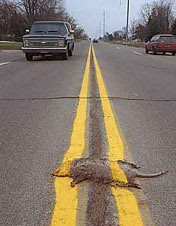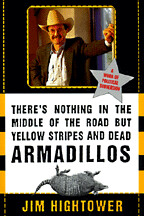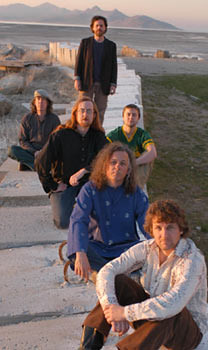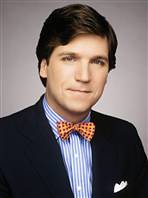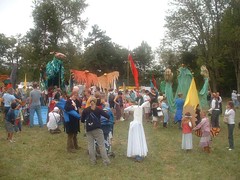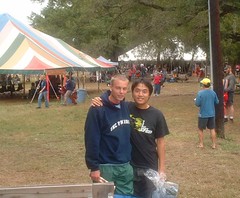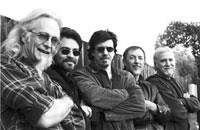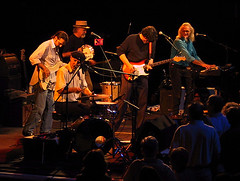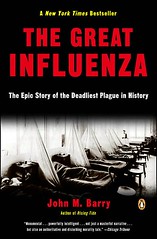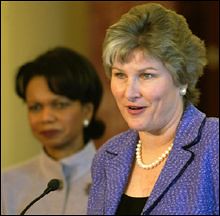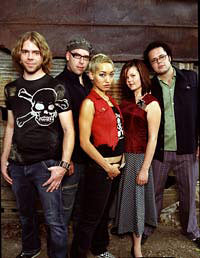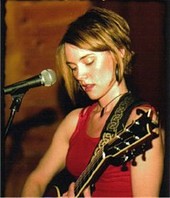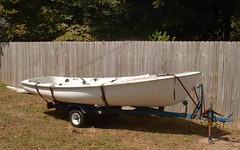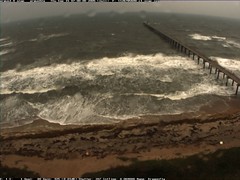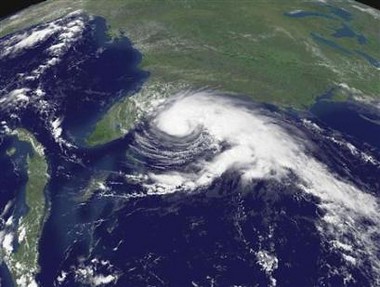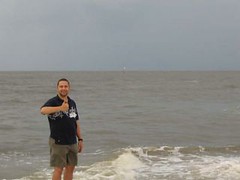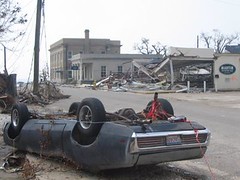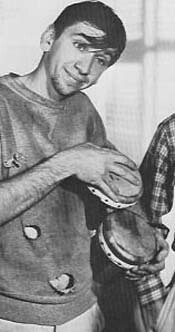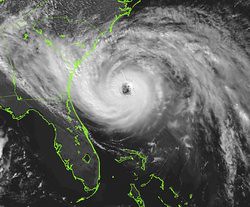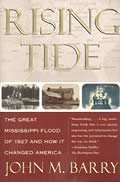When my wife moved to our small city several years ago high-speed internet access was not available through our local cable provider,
Adelphia. So she opted for a BellSouth DSL line. Soon after I joined her Adelphia began offering internet access with rates - bundled with cable TV service - that beat BellSouth. Since we were very satisfied with cable-based service where we previously lived, we went for it. We are now regretting the decision.
From the beginning our internet service would come and go. The TV picture quality, while never great, remained OK. Sometimes the internet outages were only for a few minutes; other times hours would pass. Finally, after a couple of months and a particularly long outage, I called Adelphia to complain.
Even though the local Adelphia office is just down the road, all service is scheduled at a customer service center somewhere at the end of an 800 number. So I explained our situation and we scheduled an appointment some days hence. Shortly the internet returned. By the time the service person appeared the internet had been working fine for several days. He said that they had been working in the neighborhood recently and that may have caused my disruption. He left, checking nothing, and in the weeks that followed the intermittent problem returned.
Eventually I called the service center again and we scheduled another visit. This time the service person did not appear as scheduled. Since I had been spending large chunks of time this summer on the road, I let it drop and did not complain again until the next long - over the entire damn weekend - outage. The following Monday I appeared at the desk at our local Adelphia office and told them we wanted to receive high-speed internet access. When I was told that they would be happy to sign us up I replied that we were already signed up, our service was lousy and we wanted what we were paying for. The shocked lady said they would be happy to schedule a service call. I told her I had done that but the last time no one had shown up. She disappeared in the back and returned saying a service person would be at my house in two days, in the morning between the hours of eight and noon. I thanked her and returned home to find the internet working fine.
The internet connection remained OK and on schedule the service person arrived. He checked the signal strength at the cable modem in the house and said it was good. However, I had noticed some rather funky cabling around and under the house, so I asked him to check out a cable that ran from the "head in" box around the corner of our deck and disappeared under the house through a vent grate. Two cables had been joined by a typical coax connector that was hanging in space, exposed to the elements. I thought that odd. He took apart the connection and said that water had gotten into the cable. He replaced the connectors and said that had probably been the problem all along. I felt a bit silly; I could and should have fixed that problem myself. I thanked him and he left.
The intermittent outages returned. Two weekends ago the outages became longer and more frequent. I took apart and cleaned the suspect connector; still the flashing light on the cable modem. I replaced the connector; it was no better. Monday I called the 800 number again. Trying to be helpful I also mentioned that along with the internet problems that the signal quality on my TV became worse on the higher channels, but that it improved markedly from channels 100 up. With that the internet service rep said the TV problem needed to be checked out first and I needed to be transferred to another department. She further stated that only after the TV service call could a visit from the internet service person be scheduled. Then I was transferred. I told my story again and was told it would be over a week until a TV service visit could be scheduled. I told this service person by that time I could have a DSL and Direct TV installed - and just might. Now with a slight edge to her voice - she must have noticed mine - she told me again they would be happy to schedule a visit, Tuesday next. She said they had no openings until then. I said fine.
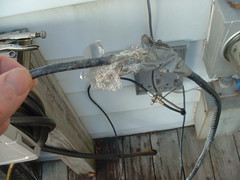
By this time I was pissed off. With no internet and over a week until an initial service call, I had to try something. I decided to replace the cable from the "head in" box entirely. I found a replacement cable after going through my coax collection in the garage. I then opened the "head in" box, disconnected the cable and worked the downstream cable away from the crack between the decking and the house siding.
That was when I saw the duct tape. The cable had been damaged, torn through to the core, wrapped with now-weathered silver duct tape, and jammed into the vertical corner of the aluminum siding. I could hardly believe what I was seeing.
My wife then told me that after she had adopted two pound puppies a couple years ago they had chewed the cable causing the TV to go out. She called the Adelphia service people, they came to the house, and she left them on the deck while she went to work. Since the TV worked after she returned she had thought no more about it.
So what I was holding was an Adelphia service repair, carefully placed out of sight in a crack in the siding. I replaced the section of cable, the internet service returned, and I began to look forward to seeing the service person in eight days. I wanted his side of the story.
Last Tuesday morning I received an automated recording from Adelphia reminding us that a service call had been scheduled between the hours of 8 AM and noon on Wednesday. Not what I was told but OK, I could wait another day. Wednesday came and went, no service person. None Thursday; none Friday. None this week. No calls explaining why they were not here. The internet has worked fine since I replace that cable.
So I have decided to post this rant. Of course it does no good. The back story is that Adelphia has been in chapter 11 bankruptcy since 2002. The founders of Adelphia, the Rigas family, seem to have used the company as their private piggy bank, diverting money for their own purposes that could have been used to insure good service for their customers. In case you missed it, the Securities and Exchange Commission described it as, "
...one of the most extensive financial frauds ever to take place at a public company." Some family members are facing major jail time for fraud and tax evasion. Most of Adelphia's cable assets have been sold to Time-Warner, which takes over next spring.
It is hard to pin any specific act of local incompetence on corporate malfeasance. But I suspect a connection between that duct tape and the billions looted from Adelphia by the Rigas family. When we read of corporate criminality - WorldCom, Enron, Tyco for examples - the fallout from these acts affect us all, not just stock holders. This criminality will continue until we elect public officials who will pass and enforce laws that finally discourage these breaches of public trust. Unfortunately the bunch calling the shots in Washington now seems more interested in promoting the interests of big business than regulating their behavior. Until that changes expect more duct tape solutions to your problems.
So I would like to reserve a Special Place in Hell for those criminals at Adelphia and at least a glimpse of the fiery furnaces to the guy with the duct tape.
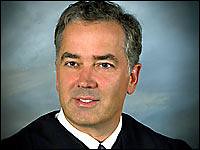 Federal Judge John E. Jones III for the Middle District of Pennsylvania is my nominee for Man of the Year.
Federal Judge John E. Jones III for the Middle District of Pennsylvania is my nominee for Man of the Year.